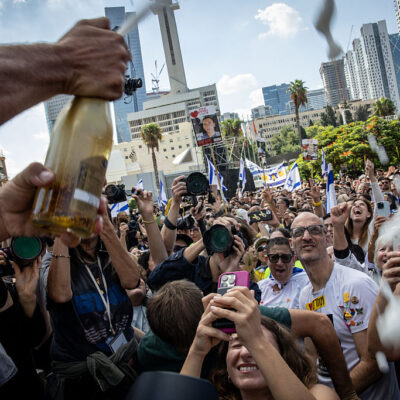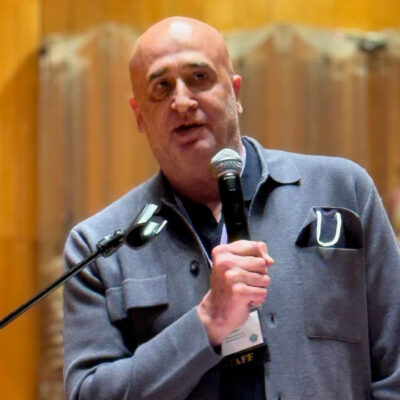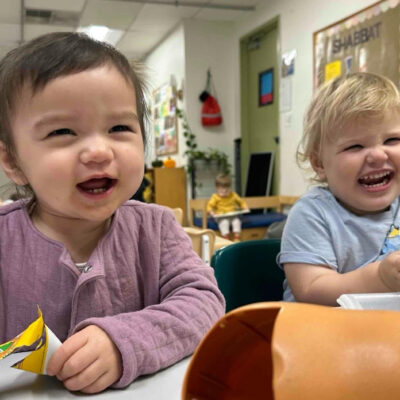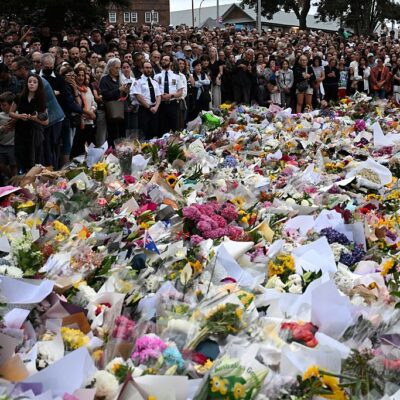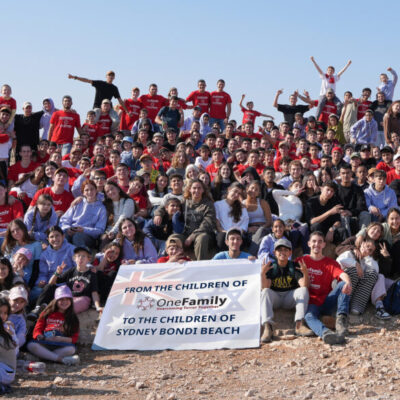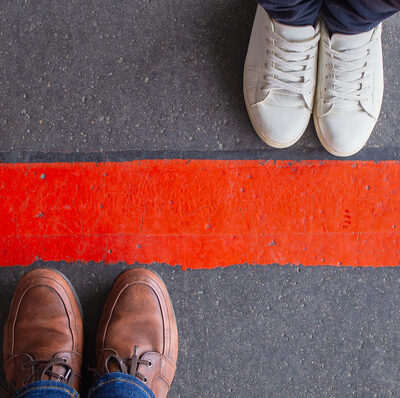Opinion
What personalized Jewish learning contributes to the service movement
Service is a fundamental Jewish value, an act of giving or caring for a person or community without expectation of personal gain. At Repair the World, we believe that meaningful acts of service grounded in Jewish learning build thriving Jewish communities, meet pressing needs and build bridges across lines of difference.
Our mission to build a Jewish service movement has become even more critical since the horrific Oct. 7 attacks and the subsequent surge in global antisemitism. Participation in Repair the World’s programs doubled in the months following the attacks. Young Jews turned to us for Jewish meaning, connection and depth as they grappled with antisemitism or feelings of helplessness and a desire to find purpose and make a difference. They arrived with big questions, and we welcomed them.
We also made sure our team was prepared to support all who showed up at our door by deepening Jewish learning within our organization in partnership with the Jewish Learning Collaborative (JLC), an initiative that provides customized learning to staff and lay leaders of Jewish organizations. Through JLC, we offer our staff and board members one-on-one, ongoing Jewish learning about any topic they want to explore with a trained and vetted educator that they choose. This approach models the kind of learning we hope to inspire in our participants: a deeply personal, meaningful connection to Jewish texts.
Jewish learning isn’t new to Repair the World. As president and CEO, I have prioritized strengthening our Jewish educational strategy so that our service programs are not only inspired by Jewish values but also rich with Jewish learning and connection. And in the aftermath of Oct. 7, 2023, the texts that have sustained our people for 3,000 years helped Repair the World’s leadership navigate complex questions.
As an organization that helps young people express their Jewish identity by caring for others, how would we respond to our own community’s surging need? What are our circles of responsibility as Jewish leaders? And how do we understand the role of bridge-building work amid our disappointment that some trusted friends remained silent in our moment of despair?
I wrestled with these ideas with my own JLC educator, Rabbi Darcie Crystal. She deftly guided me to texts that deepened my understanding of Jewish perspectives on service. We are commanded to love our neighbor, and we are also commanded to love the stranger. Our sources teach us that service is inherent to our values system. Our circles of responsibility start with our Jewish family and then extend out to all vulnerable people. Caring for the vulnerable isn’t transactional — it’s who we are as Jews.
Five years into our partnership with JLC, the depth and adaptability of the relational learning model became even more clear to me as I faced a personal health crisis. When I was diagnosed with breast cancer three years ago, my previous JLC educator seamlessly transitioned from teaching Jewish texts about service to providing spiritual and pastoral care. Because of the trust we had built through chevruta study, I felt safe exploring deeply personal questions of faith and resilience with my mentor and teacher.
This kind of transformative learning experience extends across our organization; 86 members of our team have spent a combined 1,791 hours learning in four years. The shift to becoming a learning organization truly steeped in the culture of knowledge not only elevates our organization but elevates the entire Jewish service movement.
For one colleague, the magic is in the one-on-one structure and the opportunity to steer her own learning. As someone whose professional life is focused on supporting others’ growth, she says, “having dedicated time and space for my own learning and enrichment has been invaluable.”
A non-Jewish colleague says access to a personal educator provided a safe way to ask questions, enhance belonging and learn to articulate our Jewish educational goals and outcomes. “I hoped learning would help me better perform in my job,” she explains. “But it has done so much more than that. It has shifted the way I see the world and equipped me to be a better ally to the Jewish community.”
And for a young program staffer, learning gave him the tools to impart Jewish knowledge to others. “I’ve significantly elevated the educational programming I lead by more intentionally connecting Jewish values, tradition and halacha to programmatic focuses like democracy and civic engagement, immigration justice, environmentalism and Jewish holidays,” he says.
By making Jewish learning accessible to our entire organization, we also decentralized Jewish teaching and rooted it in everything we do. Every professional and volunteer, not just the members of our education team, confidently share words of Torah at meetings and inspire their peers on Slack with especially relevant wisdom they learned in their chevruta. Every act of service performed through a Repair the World program has become a meaningful Jewish educational encounter; and every member of our programmatic team is a Jewish educator, regardless of their background or official job title.
In a challenging year for the global Jewish community, Jewish learning helped us reconnect with our core values. Returning to our sources reaffirmed what I have always known to be true: the Jewish service movement is vital, and Jewish learning is essential to sustaining it.
Cindy Greenberg is the president and CEO of Repair the World.

 Add EJP on Google
Add EJP on Google